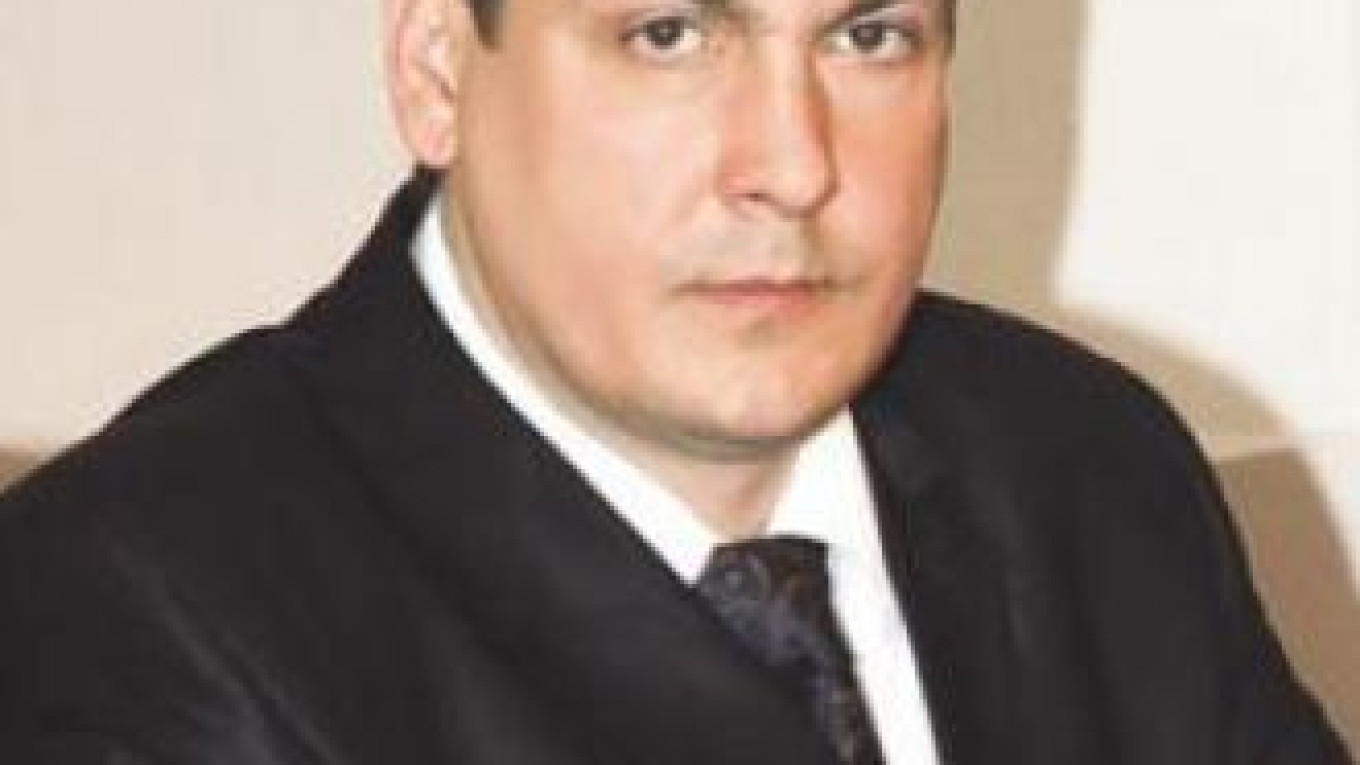Smolensk's mayor was arrested Sunday in an extortion investigation that could fuel calls for the Kremlin to end direct mayoral elections.
Mayors are the most senior local officials still elected to office after the Kremlin abolished gubernatorial elections in 2004, and a number of them have faced criminal charges in recent months amid a drive in certain quarters of the federal government to cancel mayoral elections.
Eduard Kachanovsky, mayor of Smolensk, a city of 325,000 located 360 kilometers west of Moscow, was arrested together with his deputy and his bodyguard on charges of extorting an apartment as a bribe from the head of a construction company in exchange for granting a permit for the apartment building, investigators said.
Kachanovsky faces up to 12 years in prison if convicted of large-scale extortion.
The trio was detained Friday, and a local court sanctioned the arrest of Kachanovsky and his deputy on Sunday, the Smolensk branch of the Investigative Committee said. The bodyguard was released on condition that he not leave the city.
Smolensk regional Governor Sergei Antufyev told reporters Saturday that Kachanovsky's detention had "seriously damaged" his reputation and that of Smolensk and the surrounding region, Interfax reported.
He called for the abolishment of direct mayoral elections in the region. The governor "must have the power to weigh in on a mayor's candidacy. Popular elections are a risk," Antufyev said.
Antufyev said mayors should be replaced with "city managers" proposed by governors and confirmed by city legislatures.
Although mayors are directly elected by their constituents, governors can fire them under new powers granted by President Dmitry Medvedev last May. Medvedev said governors needed to be able to reign in rogue mayors, while critics countered that the Kremlin was trying to remove any possibility of unpredictability from politics.
Antufyev did not say whether he would dismiss Kachanovsky, who was elected last March after refusing to heed a United Russia request to withdraw in favor of its preferred candidate. Kachanovsky is also a member of United Russia.
Kachanovsky's arrest could be United Russia's way of teaching him a lesson, said Dmitry Oreshkin, a political analyst with Merkator, a think tank.
United Russia officials and the Smolensk governor's office could not be immediately reached for comment Sunday.
Kachanovsky was circled by plainclothes officers from the Federal Security Service as he left the building where the Smolensk governor's office is located after a meeting at about 4:30 p.m. Friday and driven away in a car, Antufyev's administration said in a statement.
The officers also detained Deputy Mayor Valery Osipov and Kachanovsky's bodyguard, Roman Maximov. Maximov is accused of registering the apartment at the center of the extortion charges in his name on Kachanovsky's orders, investigators said in a statement. It said the three-room apartment was worth more than 2 million rubles ($67,000).
Investigators did not identify the construction company.
The alleged extortion attempt took place in September, Antufyev's administration said in a statement.
Antufyev said at the news conference that investigators have searched the offices and apartments of the suspects and have questioned a number of possible witnesses.
Kachanovsky, 36, worked for a local construction company and a company that sold real estate from 1993 until his election as mayor last year, according to a biography published on the city's official web site.
The directors of the real estate sales company, Erlan, where Kachanovsky worked as a manager from 1993 to 1997, were accused of failing to repay loans to several banks in 1995, Kommersant reported at the time.
Kachanovsky's administration has faced previous legal problems linked to extortion. Earlier last month, regional prosecutors sent to court a criminal case against Kachanovsky's adviser Alexei Khmelintsky, who is charged with seeking a bribe of 3.5 million rubles ($117,000) from the head of a construction company in exchange for a construction permit last summer.
Khmelintsky is also charged with submitting a fake diploma to obtain the position of adviser. The bribery charge carries a maximum penalty of six years in prison, while the fake documents charge could result in a prison sentence of up to six months.
Medvedev has declared war against corruption at all levels of government, and a number of mayors have come under fire.
In late February, prosecutors asked a court to hand Elista Mayor Rady Burulov a five-year suspended sentence on charges of abuse of office and illegal business activities.
In December, former Saratov Mayor Yury Aksenenko was sentenced to four years in prison after he was convicted of bribery and abuse of office.
Among earlier high-profile cases, former Arkhangelsk Mayor Alexander Donskoi was convicted of abuse of office and given a three-year suspended sentence in March 2008. In a separate case, Donskoi got a one-year suspended sentence in 2007 for faking his university diploma.
In February 2008, Tolyatti Mayor Nikolai Utkin was sentenced to seven years in prison on corruption charges.
A Message from The Moscow Times:
Dear readers,
We are facing unprecedented challenges. Russia's Prosecutor General's Office has designated The Moscow Times as an "undesirable" organization, criminalizing our work and putting our staff at risk of prosecution. This follows our earlier unjust labeling as a "foreign agent."
These actions are direct attempts to silence independent journalism in Russia. The authorities claim our work "discredits the decisions of the Russian leadership." We see things differently: we strive to provide accurate, unbiased reporting on Russia.
We, the journalists of The Moscow Times, refuse to be silenced. But to continue our work, we need your help.
Your support, no matter how small, makes a world of difference. If you can, please support us monthly starting from just $2. It's quick to set up, and every contribution makes a significant impact.
By supporting The Moscow Times, you're defending open, independent journalism in the face of repression. Thank you for standing with us.
Remind me later.


